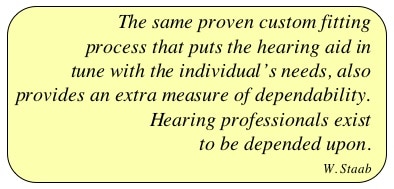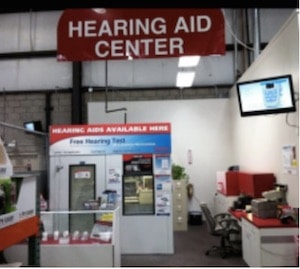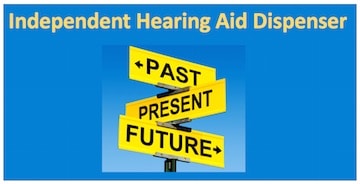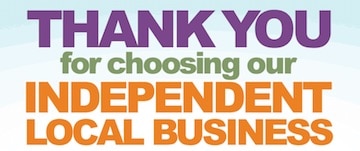The Evolving Hearing Aid Retail Landscape
 The United States is the largest hearing aid market worldwide, and one of the most dynamic. The rapidly-evolving retail landscape is fundamentally changing the way hearing aids are sold, resulting in long-term implications for both retailers and wholesalers{{1}}[[1]]The long view: the future of the U.S. hearing aid market. Who gains, who loses, from the slow death of independents, Sanford C. Bernstein & Co., LLC, June 8, 2015[[1]]. What about the independent hearing aid dispenser?
The United States is the largest hearing aid market worldwide, and one of the most dynamic. The rapidly-evolving retail landscape is fundamentally changing the way hearing aids are sold, resulting in long-term implications for both retailers and wholesalers{{1}}[[1]]The long view: the future of the U.S. hearing aid market. Who gains, who loses, from the slow death of independents, Sanford C. Bernstein & Co., LLC, June 8, 2015[[1]]. What about the independent hearing aid dispenser?
The History of Independent Hearing Aid Dispensing
 In the early days of the hearing aid industry, independent hearing aid dispensers did not exist. A dispenser/distributor/dealer was a Beltone, Qualitone, Dahlberg, Telex, Radioear, Maico, Acousticon, Sonotone, etc. dealer. The companies provided not only product, but advertising assistance, signage, logo, training, etc. These connections to a manufacturer were signed agreements for a given sales territory, volume sales, and customer leads, following a credit check. For example, a Telex dealer could not sell another company’s product, and he could only sell within his “territory.” You might say that dealers were a “franchise” of the company, but perhaps not in the strict use of the term.
In the early days of the hearing aid industry, independent hearing aid dispensers did not exist. A dispenser/distributor/dealer was a Beltone, Qualitone, Dahlberg, Telex, Radioear, Maico, Acousticon, Sonotone, etc. dealer. The companies provided not only product, but advertising assistance, signage, logo, training, etc. These connections to a manufacturer were signed agreements for a given sales territory, volume sales, and customer leads, following a credit check. For example, a Telex dealer could not sell another company’s product, and he could only sell within his “territory.” You might say that dealers were a “franchise” of the company, but perhaps not in the strict use of the term.
The “independent” dealer came into existence when dispensers moved to multi-line dealership in the early 1970s, meaning that they handled products from a number of different companies. Company names started to change from “Maico Hearing Aids” to using the dispenser’s name associated with hearing aids (Joe’s Hearing Aids), or to identify themselves with a name enhancing their specialty (Professional Hearing Aids). A variety of names were used to identify themselves or their business. The trappings of being affiliated with a specific manufacturer were essentially erased, as were the sales requirements/restrictions.
What is an Independent Hearing Aid Dispenser?
 In this discussion, the term hearing aid dispenser is used generically – either a traditional hearing aid dealer or a dispensing audiologist. The emphasis is on “independent.” But, what does “independent” mean?
In this discussion, the term hearing aid dispenser is used generically – either a traditional hearing aid dealer or a dispensing audiologist. The emphasis is on “independent.” But, what does “independent” mean?
I sampled a group of audiologists, mostly identified as independents, to determine what they believed an “independent” hearing aid dispenser to be. They did not agree on all points, but some of the characteristics on which they agreed follow:
- Solely-owned business as a legal entity with an EIN (Employer Identification Number). Business is not owned or operated for another audiologist, hearing aid dispenser, or other entity. Not affiliated with a retail chain. Not a franchise or sales operation.
- Not an employee of a medical group, but could be an equal partner. Does not revenue share with an ENT (same office, etc.), or dependent on that office and front-office staff for patient management. Owns phone number for direct patient interaction.
- Could belong to a buying group, but not if the buying group is identified or affiliated with manufacturer-owned or limited product buying groups, such as Audigy, AHAA, and others.
- Not contractually connected to a manufacturer (including being tied to unit sales to meet an accessory product purchase or activity goal). Not owned by, indebted to, or required to purchase a minimum number of hearing instruments from a manufacturer, regardless of the purpose.
- State licensed (professional membership organization not a requirement).
- Competes directly with all other distribution systems (big box stores, VA, insurance companies, manufacturer-owned stores, manufacturer buying groups, Internet, etc.).
An area of disagreement occurred with relationships to buying groups, especially if the buying group was identified or affiliated with manufacturer-owned buying groups, such as AHAA (William Demant), Elite (Amplifon), and others. This association would disqualify a dispenser from being independent. The minority position was:
- A dispenser could be independent if a member of a buying group, but chooses which product lines to purchase, and
- If the dispenser is not owned by and has no long-term contract with a manufacturer, but participates when advantageous in various manufacturer incentive purchasing programs for defined periods of time.
Using the above descriptions, it is likely that not too many independent hearing aid dispensing practices exist any more. A good estimate is that 75% of hearing aid dispensers are not independent. In general, the independent hearing aid retail market consists of privately-held hearing retail stores or small chains. Because of their small numbers, independents have little bargaining power with manufacturers, and therefore, cannot negotiate large discount prices.
The Independent Hearing Aid Dispenser – Future?
 Since 2004, there has been a notable move away from independent retail of hearing aids, which has lost 10% share of units sold (from 49% to 39% – Bernstein, 2015). The winners in this shift away from independent retail have been the Veterans Administration (VA), which is now at about 22% of U.S. unit sales, manufacturer-owned retail which is expected to continue to grow beyond its currently estimated 15%, and chain retail (i.e. Costco, which already is estimated to have 10% of U.S. unit sales). In light of these distribution channel changes that have occurred over the last decade, it seems unlikely that independent retail will rebound as a percentage of unit sales. Reasons for this include lower-priced competitors, increasing price transparency provided by the Internet, high retail average selling prices to support the business, etc. A higher service level may slow the market share loss, but after sales service offered by other distribution channels, is in many cases, fairly similar.
Since 2004, there has been a notable move away from independent retail of hearing aids, which has lost 10% share of units sold (from 49% to 39% – Bernstein, 2015). The winners in this shift away from independent retail have been the Veterans Administration (VA), which is now at about 22% of U.S. unit sales, manufacturer-owned retail which is expected to continue to grow beyond its currently estimated 15%, and chain retail (i.e. Costco, which already is estimated to have 10% of U.S. unit sales). In light of these distribution channel changes that have occurred over the last decade, it seems unlikely that independent retail will rebound as a percentage of unit sales. Reasons for this include lower-priced competitors, increasing price transparency provided by the Internet, high retail average selling prices to support the business, etc. A higher service level may slow the market share loss, but after sales service offered by other distribution channels, is in many cases, fairly similar.
Still, in a dynamic distribution system, it is possible that some of these independent retailers may be the next generation of larger businesses. For example, what is to keep a Sound Point, or Hearing Unlimited, currently small chains of independents, from growing into larger private market chain retail operations? It has been done before.







Hello Dr. Staab.This is Denny McQuaid.Just a hello and to see if you remember me.
Dennis:
Yes I do. Welcome to Hearing Health and Technology Matters.